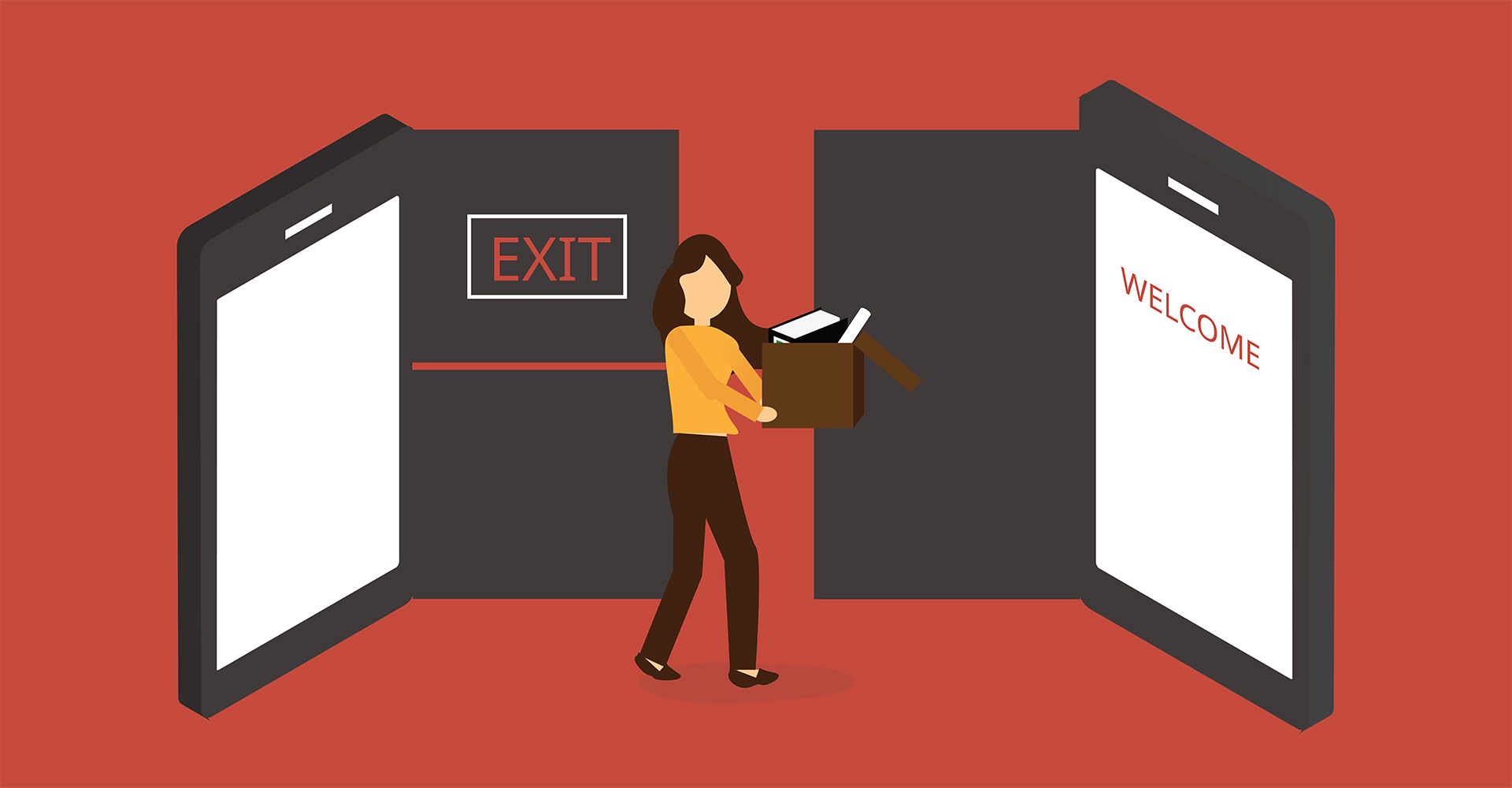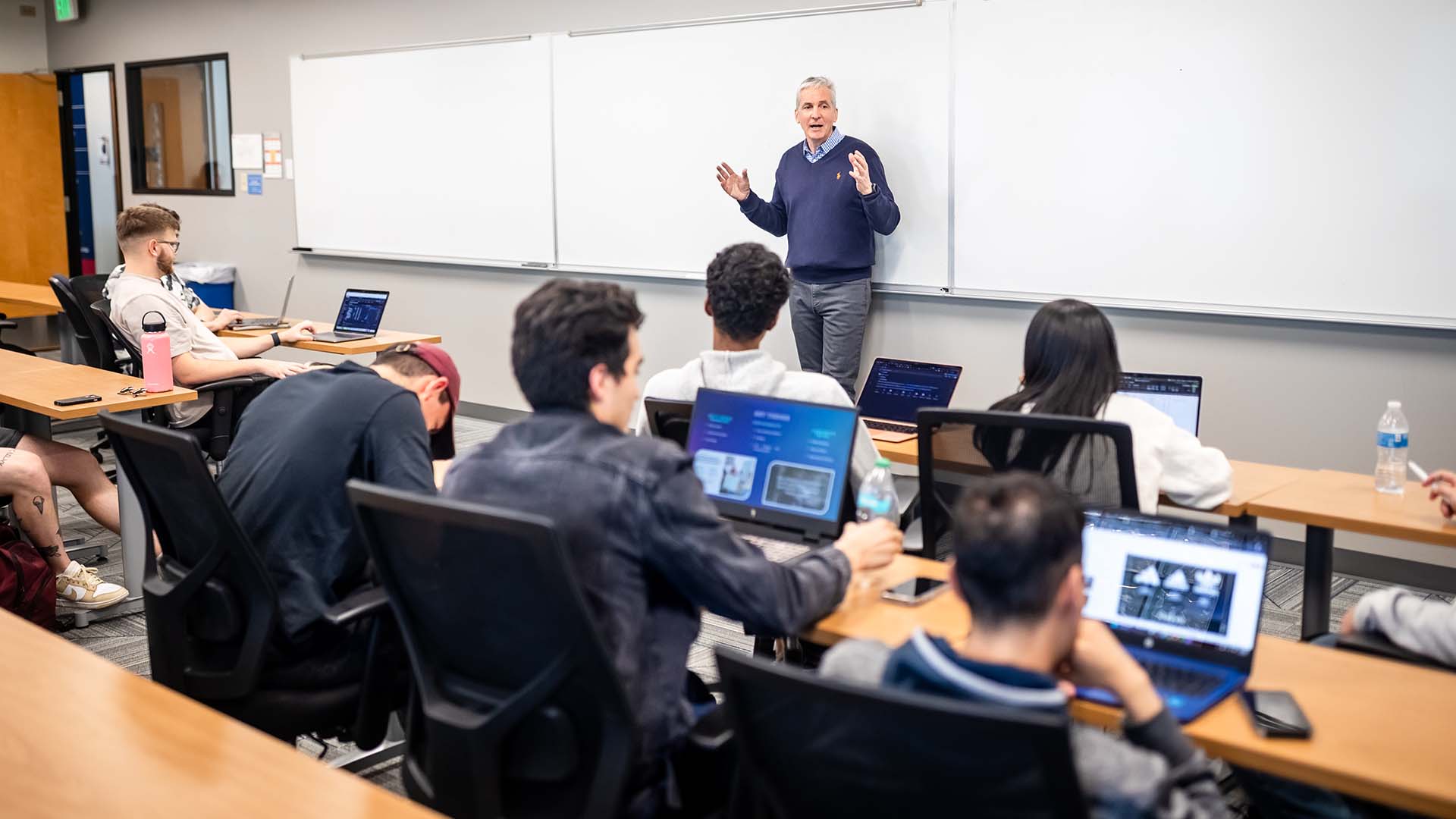What’s the future of work?
The Great Resignation spells out a simple truth: Our career priorities are changing.

The American workforce finds itself at a crossroads.
Between April 1 and July 31, more than 15 million workers quit their jobs. Each week, thousands more Americans are clearing their desks (whether literal or metaphorical) to look for something new.
And there’s little sign of the trend slowing down. According to a recent Joblist survey, 73% of currently employed workers are thinking about leaving their jobs.
If nothing else, the Great Resignation has caught the attention of employers across the country. And with good reason: People quitting is bad for business.
“The cost of hiring a new employee can be up to twice their first year’s salary,” said David Bechtold, Ph.D., an associate professor of Management at Metropolitan State University of Denver. High staff turnover not only disrupts the workplace culture, he said, but saps worker morale.
“Keeping good workers is always better than hiring new ones,” Bechtold said.
How do employers do that? Bechtold has a laundry list of recommendations: Pay more and offer better benefits. Regularly acknowledge and recognize your employees’ contributions. Understand that remote working requires a different management style. And crucially: Ask for feedback, then act on it.
Many employers, including Bechtold’s, have been striving to follow this model.
“Our investments will focus first and foremost on our people – the tremendously talented and dedicated faculty and staff members who make everything we do for our students possible,” MSU Denver President Janine Davidson, Ph.D., said to employees in a letter announcing salary increases, retention stipends, upgrades to work spaces and other measures.
“These investments will also enhance our profile and reputation as a University and attract more students who will appreciate our dedication to diversity and academic excellence,” she wrote.
Such moves can go a long way, as much for the intention they symbolize as for what they do, Bechtold said. Because while workers obviously want the usual perks of decent pay and generous benefits, he holds that most of us are also looking for something more – a basic respect for what we do and the proper support to do it well.
“Ultimately,” he said, “we all just want to feel appreciated.”
A lot of research has gone into explaining why workers are quitting their jobs in droves. A third of workers have safety concerns about returning to a physical workplace, and more than half are suffering burnout. But more than that, it appears the Covid pandemic has simply given people an opportunity to pause and rethink their careers.
And then there’s the desire for remote work and flexibility. Bechtold argues that millions of employees, especially millennials and Generation Z members, quickly realized that working from home was a viable way to make a living, even for those in the service sector. And expanded unemployment benefits gave many of them the breathing space to leave inferior jobs and train for new ones.
“I read about one restaurant worker who used the shutdown to learn computer programming and is now in a paid internship program with Google,” Bechtold said. “And you know, I don’t think he’s the only one.”
As businesses scramble for ways to keep their employees happy, Bechtold stressed that finding the right formula shouldn’t be rocket science. Ultimately, he said, people just want to feel safe, valued and empowered. But critically, they also want bosses to recognize that the world – and work culture – has changed.
“This was not your usual economic downturn,” Bechtold said. “The pandemic has fundamentally changed the employee-and-employer relationship.”







